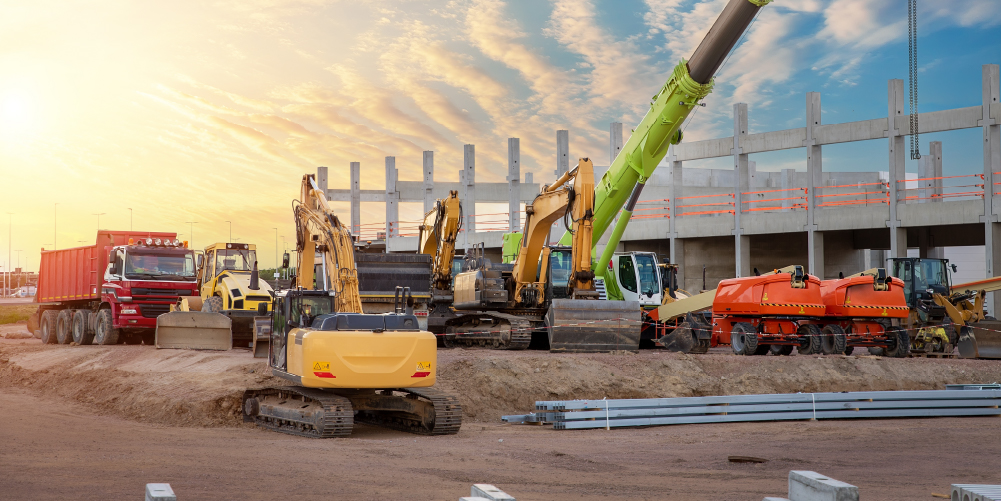— 4 min read
General Conditions In Construction
Last Updated Jan 24, 2025
Last Updated Jan 24, 2025

In construction, general conditions refer to a variety of operations, procedures, and indirect costs that are not directly linked to construction, but are still essential for successfully executing the project. Things like garbage removal, temporary offices and protection, and administrative time are all aspects of the project that are necessary but ultimately not seen at completion.
General conditions are provided by the general contractor to facilitate a completed project that will contribute to the communities in which we live, work, and go to school. Compensation is necessary for general conditions, and most commonly, their cost is included as a line item in the proposal.
Table of contents
General Conditions vs. General Requirements
General requirements address the methods needed to complete the project. These items can be found in Division 1 of the project specifications. The intent is to provide specific processes for administrative work that occurs throughout the project.
General requirements also specify the expectations of trades, separated by CSI divisions. Protocols for submittals, scheduling, payment apps, inspections, daily logs, RFIs, meetings, and all project documentation will be outlined in the general requirements.
Where general conditions are needed to build but are not part of the final product, general requirements define the procedures the GC must adhere to throughout construction while using general conditions to enable the build.
Why Are General Conditions Useful?
Separating general conditions from the rest of the project’s scope attributes value to the general contractor’s efforts. Someone needs to enable construction activities, and the general contractor is typically responsible for managing these efforts.
Using general conditions properly to facilitate and support the project will help to stay on schedule, within budget, and maintain a safe and efficient working environment for the trades. General conditions provide the resources necessary to turn over a final product.
As with every other aspect of construction, there are issues the general contractor needs to be aware of in regards to general conditions. The cost for general conditions includes the quantifiable efforts taken to create and maintain a safe and efficient job site. This should not be repurposed as an attempt for the general contractor to recoup lost costs -- the owner can request proof of general conditions at any point during the project.
For longer projects with longer durations, depreciation of general conditions, such as site protection, should be considered. The infrastructure and resources supporting the project will also need to be maintained and updated. The owner may ask for a credit on general conditions if the scope of the project is reduced, requiring less.
Common General Conditions of Construction Contracts
General conditions span from preliminary development to the project management team that will oversee the project through completion. Examples of general conditions are present in all phases of construction:
Site Management
Even before the construction proper begins, the onsite management team needs to be equipped with the infrastructure necessary to be successful. It’s the general contractor’s job to construct an office where power and utilities are available.
Project Management
The protocols and procedures detailed in Division 1, that is general requirements, are executed by a project management team employed by the general contractor. This team is typically made up of a project executive, project manager, project engineer, and superintendent.
Material Handling
It’s the general contractor’s responsibility to accept, protect, and stage incoming deliveries of materials and products to be used.
Trash Removal
A major aspect of any construction project is the debris, material waste, and garbage the site continually creates. The majority of dumpster contents will come from construction activities. However, trash from clean-ups, the staging and material handling area, as well as the office will all need to be removed.
Conclusion
General conditions are a necessary part of a construction project and are expected to be included in a general contractor’s proposal to the owner. These conditions include building infrastructure and the use of resources to enable an efficient and effective working environment for the trades.
General conditions help ensure the completion of a project will be on time and within budget, all while adhering to the processes and methods defined by the general requirements. If built and managed correctly, these projects will become a part of our community for years to come.
Categories:
Tags:
Written by
Harshil Gupta
24 articles
Harshil Gupta is a Product Marketing Manager at Procore. Backed by a stint in engineering and rich experience in growth and product marketing, he's enthusiastic about the role of technology in elevating and enabling other industries. He lives in Toronto.
View profileExplore more helpful resources

Equipped for Success: The Risks and Rewards of Construction Equipment
Even before written language, humans used tools to build. Contractors couldn’t have built the amazing feats seen and used in everyday life without machinery. From handheld tools to multi-storey tower...

The Percentage of Completion Method Explained
Accounting for income and expenses can present a real challenge for contractors, especially on long-term projects. The percentage of completion method is one of the most common methods of accounting...

What Is a General Contractor?
In the construction industry, a general contractor is the person or company responsible for overseeing a construction project. Property owners will typically hire general contractors to ensure a construction job...

MasterFormat: The Definitive Guide to CSI Divisions in Construction
Often referred to as the “Dewey Decimal System” of construction, the Construction Specifications Institute (CSI) MasterFormat is the industry standard in North America for organizing construction specifications. This system enables...